June Apple
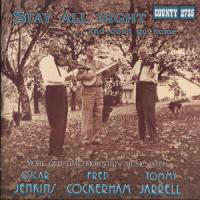 |
June Apple is an 'old time' tune most often associated with the musicians of southwestern Virginia and the border area with North Carolina. Among the most influential of the fiddlers from that region was Tommy Jarrell (1901–1985). Though never a full-time professional musician—he worked for the North Carolina Department of Transportation for 41 years—he recorded seven albums, toured extensively in his later years and was selected as one of the fifteen master folk artists in the first National Heritage Fellowships of the National Endowment for the Arts in 1982. We'll start our survey of this tune with a recording he did with Oscar Jenkins and Fred Cockerham in the late 1960's (shown right). The verses are sung on the B section of the tune.
Audio Clip: Tommy Jarrell, Oscar Jenkins and Fred Cockerham on June Apple
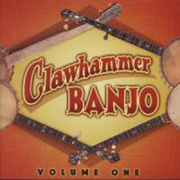 |
Comparing that cut to what we're playing you may well ask, "Are you sure that's the same tune?" Well, yes. What we're up against here are two things about old timey music. First, all these tunes are the product of living folk traditions that by their very nature create multiple, distinct versions while remaining true to recognizable core themes. And second, old time tunes much more commonly originate on fiddle or banjo than on guitar. The banjo style used in old time music is usually some variety of clawhammer or frailing, as exemplified on this next cut by native Virginian Wade Ward. Although the melody is still somewhat different than ours, see now if you can't discern the shared core of both June Apples.
Audio Clip: Wade Ward playing June Apple
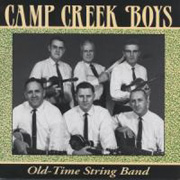 |
So far the versions we've heard haven't included guitar at all. Our next, by The Camp Creek Boys, takes one step toward guitar inclusivity by featuring the irrepressible Paul Sutphin on rhythm. Listen for the bass runs he's playing, a common characteristic of rhythm guitar in this style. This was recorded around the same time as the first track above and features one of the same musicians, Fred Cockerham. Best known for his fretless banjo playing—often working with Jarrell—Cockerham was a fine fiddler too, as you will hear on this track. Notice that in this version, the A section more closely resembles our own.
Audio Clip: The Camp Creek Boys on June Apple
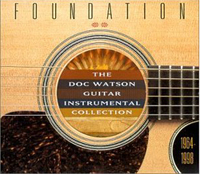 |
Doc Watson is the best known of the pioneering guitarists who can be credited (or blamed, depending on your perspective!) with popularizing the adaptation of so-called fiddle tunes for guitar. As noted above, these melodies were not originally written for guitar, so they often require some tweaking to make them work. Still, the results can be a great technical workout, a terrific jam vehicle and just plain fun pickin'. Here's a snippet of Doc's rendition of June Apple from the collection of instrumentals you see pictured to the left, Foundation.
Audio Clip: Doc Watson flatpicking June Apple
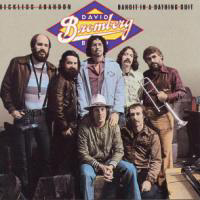 |
Finally, here's a clip from multi-instrumentalist David Bromberg's take on this tune. Notice that though he keeps coming back to the melody from time to time, he also gives himself licence to stretch out as he sees fit, leaving it behind for measures at a time. This is one of the things that distinguishes old-time music as a genre from, say, bluegrass. In an old-time setting, all the instrumentalists typically play the melody at the same time, leaving little room for variation. In a bluegrass-type setting, each instrumentalist has the opportunity to 'solo', which gives each of them more room for personal expression. Players differ in terms of how far they like to stray from the melody. Those who take a more traditional approach—like Doc Watson and Norman Blake —tend to lean hard on the original tune, even when introducing variations upon it. Other players move quickly to soloing over the chord progression with only occasional reference to the tune itself. In the clip that follows, from his 1978 Bandit in a Bathing Suit, Bromberg straddles the two approaches.
All Community Guitar Resources text & material © 2006 Andrew Lawrence
